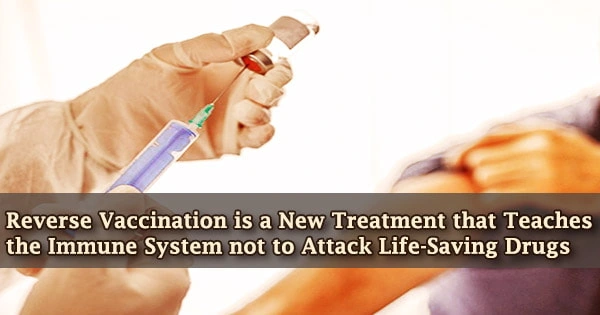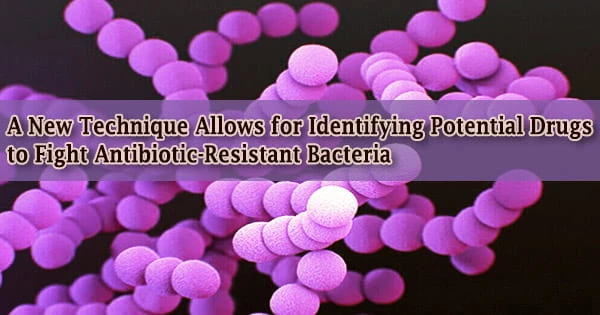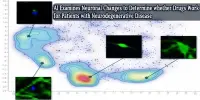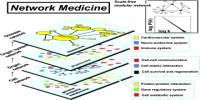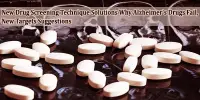The immune system is the most significant barrier to treatment for roughly a third of people with hemophilia A and practically all patients with Pompe disease. When vital proteins and enzymes are provided to them, their bodies interpret them as a threat and fight them.
Researchers at the University of Buffalo, on the other hand, have devised a new treatment that involves reverse vaccination to pre-expose the body to drugs and generate immune tolerance. The new medication combines vital proteins and enzymes with lysophosphatidylserine (Lyso-PS), a fatty acid that aids the immune system in tolerating foreign substances and so reduces pharmacological side effects.
Unlike standard vaccination, which teaches the immune system to tackle potential threats through pre-exposure, reverse vaccination teaches the immune system to ignore foreign substances through exposure.
For human survival, our immune system is critical. Our body would be vulnerable to bacteria, viruses, parasites, and other pathogens if we didn’t have an immune system. As we float over a sea of germs, it is our immune system that keeps us healthy.
According to senior investigator Sathy Balu-Iyer, Ph.D., professor of pharmaceutical sciences, and associate dean for research at the UB School of Pharmacy and Pharmaceutical Sciences, the medication could be used to treat a wide spectrum of pharmacological therapies, autoimmune disorders, and allergies.
The findings were published in Scientific Reports this month (September 2021). The Empire Discovery Institute, which will license the technology and bring the medicine to market, recently awarded Balu-Iyer funds to continue preclinical research.
The immune system is made up of a variety of cells, organs, proteins, and tissues that are distributed throughout the body. It can also tell the difference between our tissue and foreign tissue, as well as self and non-self.
The safety and effectiveness of several life-saving therapeutic drugs are compromised by anti-drug antibodies. Once antibodies develop, clinical options available for patients become expensive and, in several cases, ineffective.
Balu-Iyer
The immune system also recognizes and eliminates dead and defective cells. When the immune system comes into contact with a pathogen, such as a bacterium, virus, or parasite, it mounts an immunological reaction.
“The safety and effectiveness of several life-saving therapeutic drugs are compromised by anti-drug antibodies. Once antibodies develop, clinical options available for patients become expensive and, in several cases, ineffective,” said Balu-Iyer.
“Instead of attempting to reverse the anti-drug antibodies, which is highly challenging, clinical treatments that prevent antibody development may be a more effective strategy,” says Nhan Hanh Nguyen, first author, and pharmaceutical sciences graduate student at UB. “Our approach is based on the rationale that pre-exposure of a protein in the presence of Lyso-PS teaches the immune system not to mount a response.”
Hemophilia A is a blood clotting condition caused by a deficiency of the protein Factor VIII. After an injury or surgery, patients with the disease are at a high risk of bleeding.
The first line of defense in treatment is recombinant Factor VIII; nevertheless, the body may identify Factor VIII with other threats and create antibodies that kill it. A third of patients have these side effects, and if antibodies form, the cost of therapeutic treatments might exceed $700,000 per year.
More than 90% of patients with Pompe disease, a rare genetic disorder in which the body lacks the enzyme needed to break down complex sugars for energy, develop antibodies against treatments.
Sugar builds up in the muscles and organs without the enzyme acid alpha-glucosidase (GAA), causing weakness and lowering life expectancy. Patients are at danger of secondary infection when their immune systems are suppressed.
According to findings published in the Journal of Thrombosis and Haemostasis in August, four weeks of co-administration of Lyso-PS with Factor VIII considerably reduced antibody formation without compromising the protein’s function.
The current study created and evaluated a Lyso-PS nanoparticle with the appropriate size and surface properties for cellular uptake, binding, and survival in the gastrointestinal tract.
The Lyso-PS nanoparticle was reported to inhibit the generation of antibodies against Factor VIII in 75% of individuals and dramatically reduce antibody levels against GAA in the study.
According to Balu-Iyer, the treatment was effective when given intravenously as well as orally, the latter of which could make it easier for patients to consume and comply with their medications.
Additional investigators on the September study include Fiona Glassman, PhD, a senior clinical pharmacologist at CSL Behring, and Robert Dingman, PhD, at Regeneron Pharmaceuticals, both former students in Balu-Iyer’s lab; Gautam Shenoy, PhD, research scientist in the Jacobs School of Medicine and Biomedical Sciences at UB; Elizabeth Wohlfert, PhD, assistant professor of microbiology and immunology in the Jacobs School; Jason Kay, associate professor of oral biology in the UB School of Dental Medicine; and Richard Bankert, VMD, PhD, professor of microbiology and immunology in the Jacobs School.
